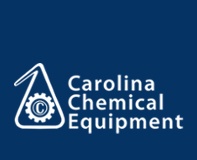FAQs of Carolina Chemical Equipment | Charleston, SC
Do you work on pressure washers?
We work on commercial grade pressure washers, but not residential grade units.
How do you know if the one I have is commercial grade?
Commercial grade pressure washers have higher flow and pressure, usually between 3 or 4 GPMs and pressure above 2000 PSI, respectively. If you bought it at a big box store for home use, it’s not commercial grade. When residential units break, it’s often less expensive to purchase a new one than to repair it. If you make money using the equipment, spend the extra money on a unit that is designed to last longer and be serviceable.
Do you sell bleach?
We sell and deliver bleach in 5-gallon pails, 55-gallon drums, and 325-gallon totes in a 12.5% solution. The type of bleach (sodium hypochlorite) you purchase at the grocery store is a 3-5% solution. Bleach is very unstable at 12.5% and will degrade rapidly depending on exposure to light and heat. For example, at 90 degrees, bleach will degrade to 7% in 30 days. Because the bleach degrades quickly, we make sure bleach is “fresh.” You’ll notice the difference when you use the really fresh bleach – it works a lot more quickly.
How much will it cost to fix my equipment?
Over the phone, we really can’t tell you. We have to look at it. There are several things that will cause a piece of equipment to stop working. Once we look at it, we can give you a pretty good estimate, as we have been working on pressure washers, scrubbers, and pumps since 1981 and have seen just about everything that can break.
One issue we run into frequently is older pieces of equipment that have given so many years of service that its owner is understandably attached to it. The temptation is always to get one more season out of it, but this is usually a bad idea, as you’ll end up buying a replacement – but only after having dumped money into repairing something that was at the end of its life.
How do I clean “__________?"
The short answer is, “it depends.” It depends on the make-up of the grime. Is it grease, mold, road grime, concrete dust? How aggressive can you be? Can you agitate? The best thing to do is call us. We don’t clean things, but we can give you the knowledge and tools you need to do the job yourself. Usually, we can provide chemical samples for you to test. After 30 years there isn’t much we haven’t seen.
When will my equipment be fixed?
We try to respond as quickly as we can. We have a stock of parts for the more common units so we can fix them as soon as we determine the problem. Having said that, there are many makes and models, so we cannot carry every part for every unit. We can usually get parts we don’t have in a few days, and if you bought your equipment from us, we can often arrange a loaner. We do our best to make sure downtime is minimized.
If I bring it to you now, can you fix it immediately? It’s really just a quick fix.
We’ll be up front with you – sometimes we can, but most of the time we can’t. When the schedule permits and we can do it immediately, everyone is happy. If we tell you we can, and then can’t, you’re not happy because you feel like we changed the rules on you. So it really depends on what’s on the schedule – we won’t change the order of requests. We know, however, that this is your livelihood, and we’ll make every attempt to get you up and running as quickly as possible.
The Most Common Pressure Washer Problems We See
Why doesn’t my pressure washer have any pressure?
There could be several reasons. Look for the simplest things first:
- Is it getting water through the filter?
A partially clogged inlet filter will decrease the pressure because of low water flow.
- Is the tip clogged?
A clogged tip will act a like a closed handle.
- Do you have the correct size tip?
Pressure is achieved by restricting the flow of water through a small hole in the tip of the wand. Tips are sized based on desired PSI. Too big of a tip means less pressure, too small of a tip and the unit goes in and out of bypass.
- Is the unloader stuck?
In most models, the pump is always pumping whether the trigger is pulled or not. The unloader diverts or bypasses the flow of water back through the pump, and sometimes the unloader gets stuck and will not come out of bypass. Look at the shaft on the unloader – it should be moving in and out when you pull the trigger.
- Was the pressure lost gradually or all at once?
Pumps have packing, which wears over time. A gradual loss of pressure may mean it is time to re-pack the pump. If the pump lost pressure quickly, a check valve may be stuck. On commercial pumps, both are usually easy to fix.
- Is the pump ‘chattering?'
A pump is designed to pump water, not air. When there is an air leak on the suction side of the pump, it will cavitate, causing it to “chatter.” Fix any leaks you see and this problem will be solved.
- The heat on my diesel-fired hot water unit isn’t working. What should I do?
We see this a lot on diesel-fired units. First of all, switch the heat off. When the igniter fails, the heat will stop but the heat switch is left on and raw fuel is dumped into the bottom of the coil. When the heat is repaired, all the un-ignited fuel creates smoke, which leads to soot, which may lead to having to pull the coil out for a cleaning.
Also, be sure to change the fuel filter regularly. Many heat problems occur when the fuel filter isn’t changed regularly.




